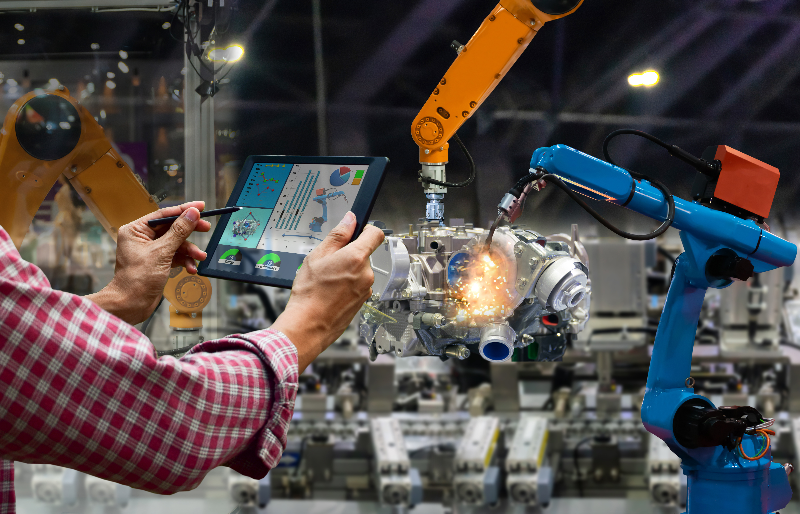What to expect for the future of mechanical engineering?

With the rise of industry 4.0, digitisation is rapidly changing the mechanical engineering sector. From artificial intelligence (AI) and machine learning (ML) to big data, these technologies are transforming the way engineers develop and design new equipment. Technology is creating increased opportunities for mechanical engineers to design and introduce (NPI) improved products and adapt them to the changing demands of customers. In the past, designing new equipment and systems often required engineers to develop prototypes multiple times before the final version. As more and more data becomes available, this will allow mechanical engineers to accelerate the design process, make accurate evaluations, and thus create products based on the results. There’s an evolution taking place in mechanical engineering, so what can we expect in the future?
Internet of Things (IoT)
One of the most significant changes in mechanical engineering is the way mechanical products are developed, prototyped, and manufactured. There is a shift away from mechanical systems to more software and data-driven tools both at the design stage and application level with a connection directly to the internet. Many product iterations are carried out on-screen via computer-aided design and simulation, ensuring more efficiency and accuracy using field data. In the future, we’re likely to see more IoT-driven intelligent devices that can communicate with their original equipment manufacturer (OEM) after they’ve left the manufacturing line. As a result, mechanical engineers can easily identify and potentially solve common issues and make improvements, all whilst working remotely. IoT simply helps mechanical design engineers identify and solve problems with their products faster. According to research, the number of IoT devices online will rise to 75 billion by 2025. This means the future mechanical engineer must be ready for a new age of simulations and integrated design processes, both of which will make workflows more streamlined.
The rise of electric vehicles
There’s no doubt that that electric vehicles (EV) will have a huge impact on the mechanical engineering sector. One of the biggest changes will be the gradual move from combustion engines to battery-based power systems, which are much cleaner and environmentally friendly. But employment numbers are unlikely to be affected as most mechanical engineers in the automotive sector do not design engines. The greatest proportion of work in the automotive arena includes chassis, frame and body, seating, airbags, ventilation, instrument cluster, cooling systems etc. As the EV market grows, there will be an increased demand for mechanical engineers to predict and control how heat moves around the automotive vehicle (computational fluid dynamics), how materials and geometries respond to forces, how materials wear; how humans fit and interact with objects in their environment, etc. Some mechanical engineers may also need to develop the electrical control circuits within the EV. There is a whole range of new opportunities for mechanical engineers with the rise of EVs.
Paving the way for sustainability
In the coming years, there will certainly be an increase in the demand for renewable energy technologies. The shift towards more sustainable practices is becoming more common, with solar and wind energy being used more than other sustainable sources. The future of mechanical engineering may revolve around developing new machines to assist in the manufacturer of solar cells and semiconductor wafers. We must focus on sustainable engineering in the future to help minimise the environmental impact. The mechanical engineering sector is very well positioned to create solutions that not only enable resource-friendly manufacturers but also explore new recycling options and ensure waste materials are leaving warehouses in the right way, plastics is an example where many solutions are being developed for comprehensive waste management.
In the future, we can expect more products and manufacturing processes that will give mechanical design engineers opportunities to be more sustainable.
Are you looking to take the next step in your mechanical engineering career?
Redline has an outstanding track record of recruiting professionals into mechanical engineering roles across the industrial sectors. Since 1982, we’ve been delivering recruitment expertise to a range of clients and candidates, and our team can provide the support and guidance you need. Mechanical engineering roles are highly in demand and we’re able to help you stay one step ahead of the competition in the market. We offer both contract and permanent roles.
View our engineering roles today or quick send your CV to hear about the latest job opportunities. To know more about Industry 4.0 and the executive skills required otherwise please contact Brett Longden on 01582 450054 or email blongden@redlinegroup.com.

